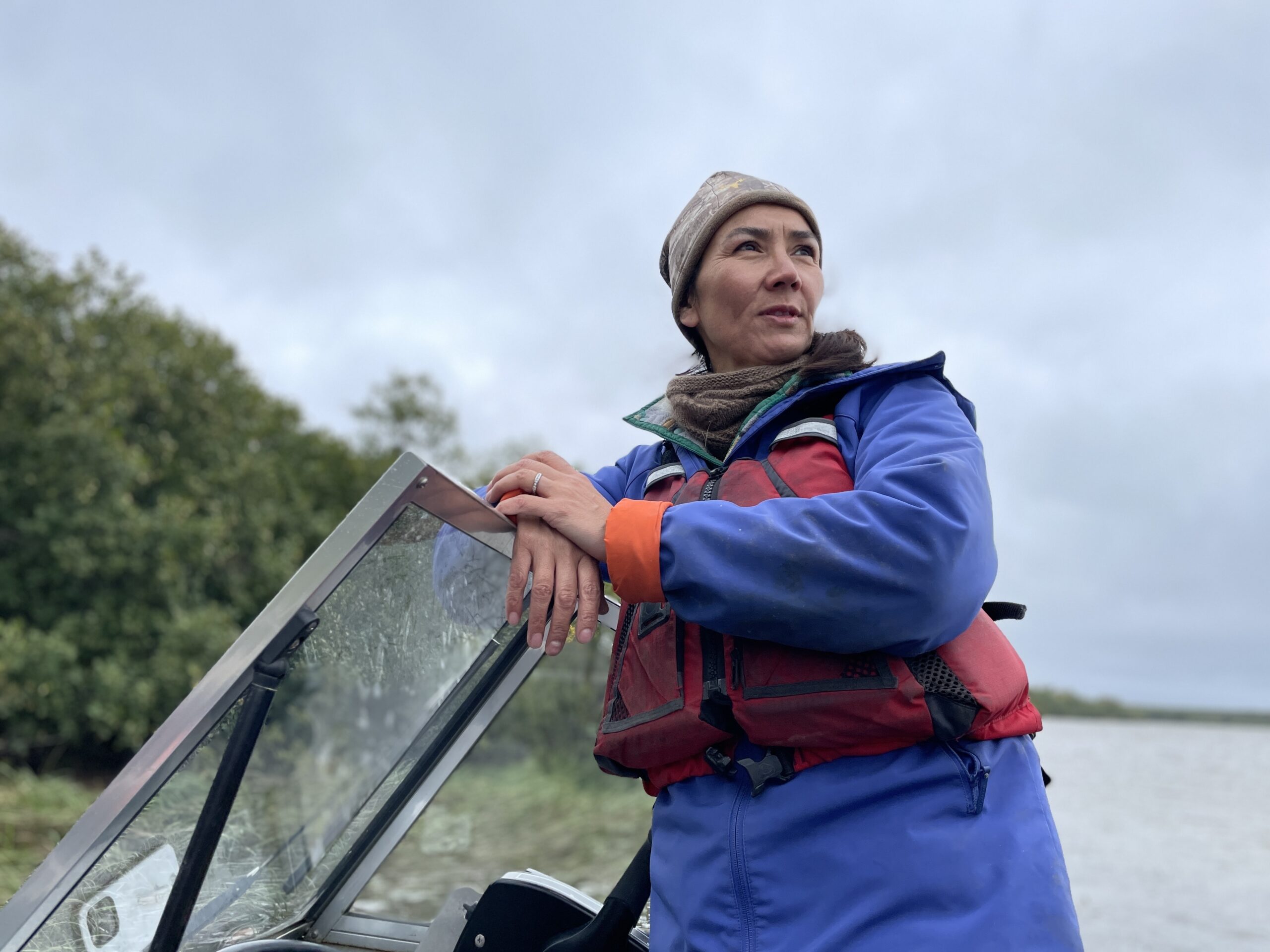
Alaska’s subsistence fishing advocates want to change the nation’s primary fishing law to crack down on the accidental catch of salmon by the Bering Sea trawl fleet. Changing the law is looking increasingly unlikely, but there might be another way.
Congresswoman Mary Peltola focused on revising the Magnuson-Stevens Act since the start of her campaign. But she said it’s not in the cards now.
“I think everybody recognizes that there’s a very slim chance that Magnuson-Stevens will be authorized this year” or next, Peltola said in a recent video call arranged by a public affairs firm called Ocean Strategies.
Rather than change the law, the new strategy is to change a set of guidelines for the law that’s already on the books.
It’s a fallback position. It’s not likely to yield quick results. But this year is shaping up to be another grim one for chinook and chum runs on the Yukon and Kuskokwim rivers. Peltola and other salmon advocates say it’s important to take some kind of action now to preserve the possibility of a return to salmon abundance.
Magnuson-Stevens is a complex law. It includes 10 national standards, akin to fundamental management commandments. They say things like fish allocations must be “fair and equitable,” and bycatch must be minimized “to the extent practicable.” The guidelines refine those standards.
Last week, the National Marine Fisheries Service announced it’s begun revising three of the guidelines, dealing with fairness, community dependence on fish and minimizing bycatch.
Peltola sees an opportunity. She calls it a “workaround.”
“If the only change we can make in the 118th (current) Congress is to take another look at these national standards, we’ve got to do it. And we’ve got to do it now,” Peltola said.
By one means or another, she and other advocates hope to rein in the ocean-going trawl fleet. The trawlers catch thousands of king and chum salmon in the Bering Sea in their nets as bycatch – unintentionally – while they fish for pollock.
Meanwhile, along the Yukon, Alaska Native communities that have relied on salmon for thousands of years weren’t allowed to take a single chinook for the dinner table last year or the year before. And 2023 is shaping up to be another dire one for subsistence chum and chinook fishing on the Yukon and Kuskokwim rivers.
Getting at the problem by changing the guidelines is “totally wonky” and will take a while, said Hannah Heimbuch, a commercial salmon fisherman and a consultant at Ocean Strategies.
As Heimbuch sees it, the process allows for a “conversation” about bycatch, among other things. She said new guidelines could reset the priorities for the North Pacific Fishery Management Council so that it’s more responsive to near-shore and in-river fishermen.
“I think that it’s an opportunity to kind of be frank about some of the ways that the management plans, as they exist now, aren’t able to manage bycatch in a way that is sustainable in the long term,” she said.
Brett Paine, executive director of United Catcher Boats, believes the focus on the trawl fleet as the culprit is unwarranted.
“The amount of salmon, in terms of numbers, relative to the numbers of pollock we catch is de minimis,” he said.
His organization represents about 70 trawlers working in the Bering Sea, Aleutians and Gulf of Alaska. He says the Bering Sea fleet is already successful at limiting bycatch.
“For us to catch 1.2 million metric tons of pollock, and to only catch 6 (thousand) to 9,000 chinook, I say, we’ve done a pretty good job,” he said.
Paine acknowledges that a bycatch of 6,000 chinook sounds like a lot to Yukon River fishermen who can’t catch any. But he points to research showing that a lot of those fish weren’t bound for the Y-K Delta, and not every fish was going to survive to maturity anyway. He says trawl bycatch is not to blame for the collapse of Western Alaska salmon runs.
Salmon advocates say several factors are harming salmon populations, chiefly climate change. But they say that makes it even more important to take action where possible, like against bycatch.
The National Marine Fisheries Service is accepting public comment on new guidelines through Sept. 12.
Liz Ruskin is the Washington, D.C., correspondent at Alaska Public Media. Reach her at lruskin@alaskapublic.org. Read more about Liz here.





